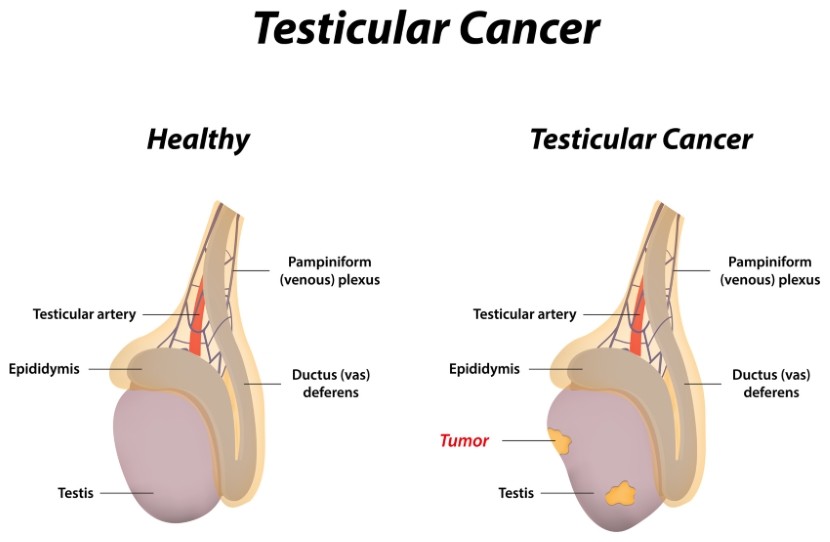The incidence of testicular cancer is skyrocketing globally. About 1 out of every 100 cancers diagnosed in men is testicular cancer. Though this figure may not trigger alarm bells, the numbers do add up. Around 53,300 new cases of testicular cancer were estimated to be diagnosed worldwide in 2012. In 2015, 257,823 men were estimated to be living with testicular cancer in the United States alone.
Testicular cancer rates have almost doubled in the United States since the mid-70s. Between 1975 and 2014, the number of testicular cancer cases went from 3.8 per 100,000 to 5.7 per 100,000 in 2014, according to the National Cancer Institute. More than 9,000 American males are expected to be diagnosed with testicular cancer in 2018. For men between the ages of 15 – 44, cancer of the testicles is the most commonly diagnosed cancer. Testicular cancer occurs when cells in the testicle, the male reproductive organ, begin to reproduce uncontrollably and may even spread to other organs in the body.
Evidence from several studies have implicated unhealthy dietary choices as a contributing factor to the development of testicular cancer. A 2003 study that examined the link between diet and testicular cancer revealed that men who regularly consumed generous portions of cheese were almost 90 per cent more likely to develop testicular cancer than men who ate little or no cheese. Another study published in the Journal of Cancer Epidemiology, Biomarkers, and Prevention showed that a 37 per cent rise in the risk of testicular cancer was associated with regular intake of 20 servings of milk per month in adolescents. The researchers hypothesized that the hormones, galactose, and fat present in dairy products may be responsible for the cancer-promoting effects of milk and cheese.
Cancer of the testicles is the most prevalent cancer among young men in Western nations. This cancer was responsible for about 400 deaths in the United States in 2017. This previously rare cancer is becoming increasingly common now, and dairy products have been implicated to play a significant role in the rising rates of testicular cancer. A diet devoid of dairy products can boost an individual's chances of avoiding testicular cancer.
Additional Information:
(1) Cancer Stats Facts: Testicular Cancer
(2) Dietary Risk Factors for Testicular Carcinoma
(3) Adolescent Milk Fat and Galactose Consumption and Testicular Germ Cell Cancer
